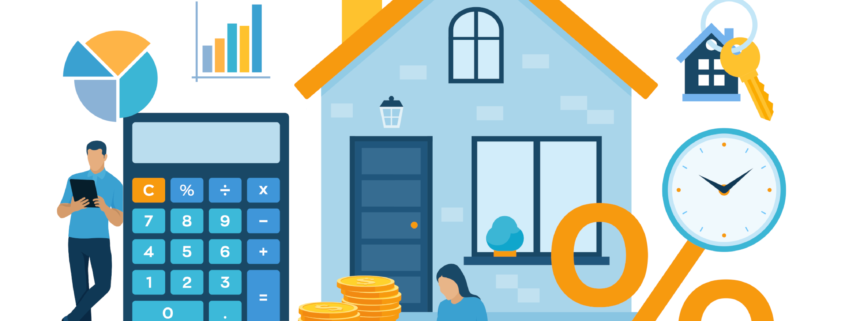How Preapproval Gives You Home Buying Power
The rate for a 30-year fixed-rate mortgage dropped to a new all-time low of 2.86% this week after reaching the previous low of 2.88% the week ending August 6. These low rates are providing buyers with a chance to lock in low payments, but a big challenge is finding the right home with today’s low inventory in most markets. Additionally, there’s a lot of demand that’s not being met by the available inventory, leading to more buyers purchasing homes sight-unseen for a competitive edge.
If you’re a buyer who’s been on the sidelines and waiting for less competition, you may be waiting some time. The National Association Of Realtors Existing-Home Sales report for July showed sales increased in every region of the country for the second consecutive month, while median home prices grew in each of the four major regions from one year ago.
“The housing market is well past the recovery phase and is now booming with higher home sales compared to the pre-pandemic days. With the sizable shift in remote work, current homeowners are looking for larger homes and this will lead to a secondary level of demand even into 2021.”
– Lawrence Yun
Chief Economist, NAR
Preapproval Makes You A Serious Buyer
You obviously need every advantage you can get in today’s competitive buying market. The most powerful advantage is having a preapproval letter and going through that process before you start your home search. Here are some of the competitive and practical advantages of the process and having a preapproval letter:
- You’ll be considered as a serious contender for a home, providing much better odds for your offers to be accepted
- You’ll know the maximum amount you can borrow to help your search effort
- You’ll learn about any credit issues through the credit report that may impact your qualification
- You’ll understand your loan options and budgets by reviewing these with the lender
What About Prequalification?
Prequalification does not involve a thorough check into your income and credit. It’s generally used as tool by buyers who are just starting to explore and want to know what size loan they could qualify for. This involves telling a lender about your credit, debt, income and assets, and they will estimate whether you can qualify for a mortgage and what size loan you would be eligible for.
What You Can Expect For Preapproval
Getting preapproved for a home loan requires working with a lender and sharing financial information with them about your income and debt, and undergoing a credit check. Here’s a list of things you can generally expect to be asked of you in your preapproval process with a lender. You can speed up the process by gathering this information in advance.
Credit
For conventional loans, most lenders will require a FICO score of 620 or higher for an approval. A credit score of 740 or above will help you qualify for the best mortgage rates.
You should research what your DTI, or debt-to-income ration is while getting prepared for preapproval. This figure shows lenders how much money you spend versus how much money you have coming in. To calculate your DTI, you add up your monthly minimum debt payments and divide that by your monthly pre-tax income. This can be tricky because you would not include all monthly payments. Payments such as healthcare premiums, utilities, contributions to 401K or savings accounts, and other payments are not included in calculating DTI. For this reason, it’s best to find a DTI calculator through a reputable service provider to get accurate results. To give you a ballpark number, you should have a DTI of 50% or less to get the most mortgage options.
Most lenders focus on what is called “back-end” DTI which includes your minimum required monthly debts that would show up in your credit report in addition to your future monthly mortgage payment.
Proof Of Income
Be prepared to provide recent payment statements that show monthly income along with year-to-date income, recent tax returns (usually the two most recent), and any other documentation of payments like bonuses.
Employment Verification
In addition to payment statements from your employer, lenders will commonly want to confirm your employment by contacting your employer to verify your employment and salary. If you recently changed jobs, they may contact your previous employer to confirm your employment and salary with that employer.
If you’re self-employed, you’ll likely need to provide various business details and that show the business is positioned to continue supplying your stated income, along with your recent tax returns.
Proof Of Assets
The lender will want to confirm you have the assets required to cover the down payment and closing costs, and that you have adequate cash reserves. This will require proving the lender with statements from your bank and investment accounts.
Other Documentation
Be prepared to provide driver’s license or other accepted alternative. You’ll also provide the lender with your social security number and your signature that will allow them to perform a credit report. You should be prepared to deliver any additional documentation as quickly as possible if it is asked for. The faster you can help your lender complete the preapproval, the sooner you can land your new home!





Leave a Reply
Want to join the discussion?Feel free to contribute!